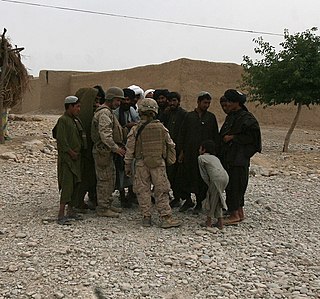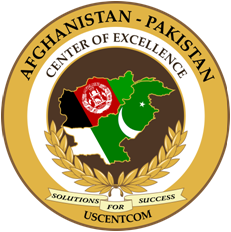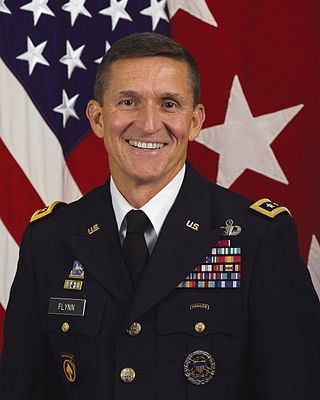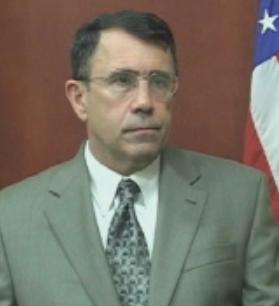
The Defense Intelligence Agency (DIA) is an intelligence agency and combat support agency of the United States Department of Defense, specializing in defense and military intelligence.

Military intelligence is a military discipline that uses information collection and analysis approaches to provide guidance and direction to assist commanders in their decisions. This aim is achieved by providing an assessment of data from a range of sources, directed towards the commanders' mission requirements or responding to questions as part of operational or campaign planning. To provide an analysis, the commander's information requirements are first identified, which are then incorporated into intelligence collection, analysis, and dissemination.
Intelligence assessment, or simply intel, is the development of behavior forecasts or recommended courses of action to the leadership of an organisation, based on wide ranges of available overt and covert information (intelligence). Assessments develop in response to leadership declaration requirements to inform decision-making. Assessment may be executed on behalf of a state, military or commercial organisation with ranges of information sources available to each.

ISTAR stands for intelligence, surveillance, target acquisition, and reconnaissance. In its macroscopic sense, ISTAR is a practice that links several battlefield functions together to assist a combat force in employing its sensors and managing the information they gather.

The Bureau of Intelligence and Research (INR) is an intelligence agency in the United States Department of State. Its central mission is to provide all-source intelligence and analysis in support of U.S. diplomacy and foreign policy. INR is the oldest civilian element of the U.S. Intelligence Community and among the smallest, with roughly 300 personnel. Though lacking the resources and technology of other U.S. intelligence agencies, it is "one of the most highly regarded" for the quality of its work.

Joseph Cofer Black is an American former CIA officer who served as director of the Counterterrorism Center in the years surrounding the September 11th attacks, and was later appointed Ambassador-at-Large and Coordinator for Counterterrorism at the State Department by President George W. Bush, serving until his resignation in 2004. Prior to his roles combatting terrorism, Black served across the globe in a variety of roles with the Directorate of Operations at the CIA.

The Office of Naval Intelligence (ONI) is the military intelligence agency of the United States Navy. Established in 1882 primarily to advance the Navy's modernization efforts, it is the oldest member of the U.S. Intelligence Community and serves as the nation's premier source of maritime intelligence.

Paul E. Vallely is a retired United States Army major general and former senior military analyst for Fox News.

The National Center for Medical Intelligence (NCMI), formerly known as the Armed Forces Medical Intelligence Center, is a component of the United States Defense Intelligence Agency (DIA) responsible for the production of medical intelligence and all-source intelligence on foreign health threats and other medical issues to protect U.S. interests worldwide. Headquartered at Fort Detrick, Maryland, the center provides finished intelligence products to the Department of Defense, U.S. Intelligence Community, Five Eyes, NATO, allies and partners, as well as international health organizations and NGO's.
The Human Terrain System (HTS) was a United States Army, Training and Doctrine Command (TRADOC) support program employing personnel from the social science disciplines – such as archaeology, anthropology, sociology, political science, historians, regional studies, and linguistics – to provide military commanders and staff with an understanding of the local population in the regions in which they are deployed.
Intelligence cycle management refers to the overall activity of guiding the intelligence cycle, which is a set of processes used to provide decision-useful information (intelligence) to leaders. The cycle consists of several processes, including planning and direction, collection, processing and exploitation, analysis and production, and dissemination and integration. The related field of counterintelligence is tasked with impeding the intelligence efforts of others. Intelligence organizations are not infallible but, when properly managed and tasked, can be among the most valuable tools of management and government.
Intelligence Analysis Management is the process of managing and organizing the analytical processing of raw intelligence information. The terms "analysis", "production", and "processing" denote the organization and evaluation of raw information used in a phase informally called "connecting the dots", thus creating an "intelligence mosaic". The information may result in multiple analytic products, each with different security classifications, time scales, and levels of detail. Intelligence analysis goes back to the beginning of history. Sherman Kent is often considered the father of modern intelligence analysis. His writings include a 1947 book, Strategic Intelligence for American World Policy.
Intelligence dissemination management is a maxim of intelligence arguing that intelligence agencies advise policymakers instead of shaping policy. Due to the necessity of quick decision-making in periods of crisis, intelligence analysts may suggest possible actions, including a prediction of the consequences of each decision. Intelligence consumers and providers still struggle with the balance of what drives information flow. Dissemination is the part of the intelligence cycle that delivers products to consumers, and intelligence dissemination management refers to the process that encompasses organizing the dissemination of the finished intelligence.

After the Central Intelligence Agency lost its role as the coordinator of the entire United States Intelligence Community (IC), special coordinating structures were created by each president to fit his administrative style and the perceived level of threat from terrorists during his term.

The Afghanistan-Pakistan Center of Excellence is an internal think tank at the United States Central Command focused on Afghanistan, Pakistan, and the Central Asian States. The AFG-PAK COE seeks to build expertise in and provide improved intelligence for the missions in those countries and the states around them. The AFG-PAK COE is planning to help expand the number of U.S. military and civilian experts on Afghanistan and Pakistan by providing them with education and training opportunities covering the culture, language, and region, and keeping these analysts and military forces connected to these missions in those countries when they are between deployments.

Michael Thomas Flynn is a retired United States Army lieutenant general who was the 24th U.S. national security advisor for the first 22 days of the Trump administration. He resigned in light of reports that he had lied regarding conversations with Russian ambassador to the United States Sergey Kislyak. Flynn's military career included a key role in shaping U.S. counterterrorism strategy and dismantling insurgent networks in the Afghanistan and Iraq Wars, and he was given numerous combat arms, conventional, and special operations senior intelligence assignments. He became the 18th director of the Defense Intelligence Agency in July 2012 until his forced retirement from the military in August 2014. During his tenure he gave a lecture on leadership at the Moscow headquarters of the Russian military intelligence directorate GRU, the first American official to be admitted entry to the headquarters.

Derek J. Harvey is a retired US Army Colonel who previously served on the staff of Congressman Devin Nunes, ranking member of the House Permanent Select Committee on Intelligence. Harvey is a former National Security Council (NSC) staffer in President Donald Trump's administration and was the first director of the Afghanistan-Pakistan Center of Excellence at U.S. Central Command (CENTCOM), having been selected by General David Petraeus in 2009 to lead the new organization. Harvey was the previous senior analytical specialist for Iraq to Petraeus, then Commander, Multi-National Forces-Iraq. After being fired from both USCENTCOM and the NSC, he became a top aide to Republican congressman Devin Nunes on the House Intelligence Committee in September 2017. While in this role, Harvey worked to leak the name of the Ukraine whistle-blower, causing concern about their safety and legal protections of whistle-blowers.

The Defense Clandestine Service (DCS) is an arm of the Defense Intelligence Agency (DIA), which conducts clandestine espionage, intelligence gathering activities and classified operations around the world to provide insights and answer national-level defense objectives for senior U.S. policymakers and American military leaders. Staffed by civilian and military personnel, DCS is part of DIA's Directorate of Operations and works in conjunction with the Central Intelligence Agency's Directorate of Operations and the U.S. military's Joint Special Operations Command. DCS consists of about 500 clandestine operatives, which is roughly how many case officers the CIA maintained in the early 2000s prior to its expansion.

Matthew Forbes Pottinger is an American former journalist and U.S. Marine Corps officer who served as the United States deputy national security advisor from September 22, 2019 to January 7, 2021. Previously Asia director on the National Security Council since 2017, his tenure was unusual among senior aides serving under President Trump for its length, given an administration marked by high turnover. Pottinger worked to develop the Trump administration's policies towards China.
The Russian bounty program was an alleged project of Russian military intelligence to pay bounties to Taliban-linked militants for killing American and other allied service members during the war in Afghanistan. The existence of the alleged program was reported in the media in 2020 and became an issue in the 2020 presidential election campaign.














